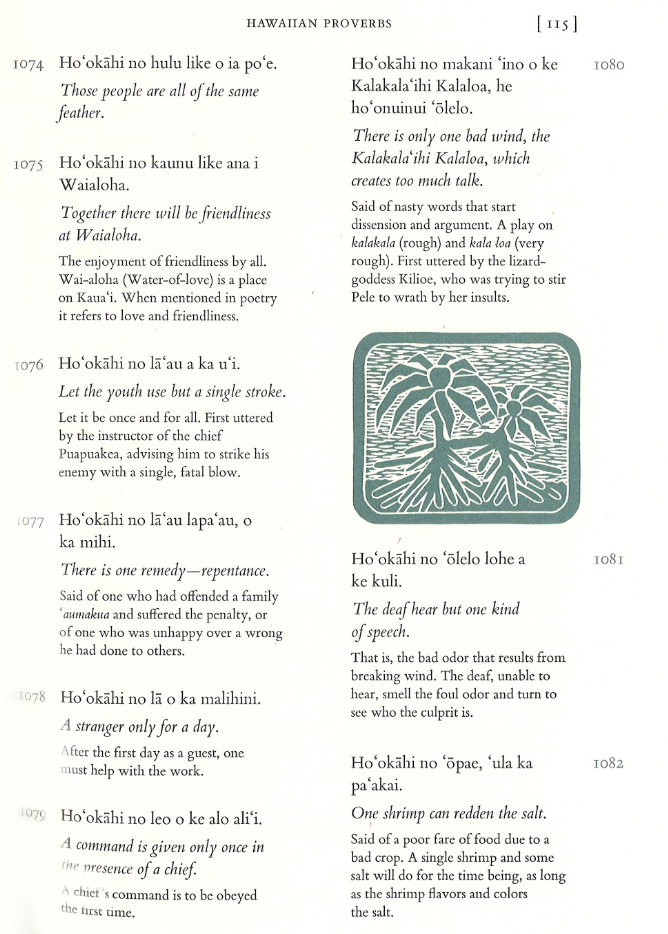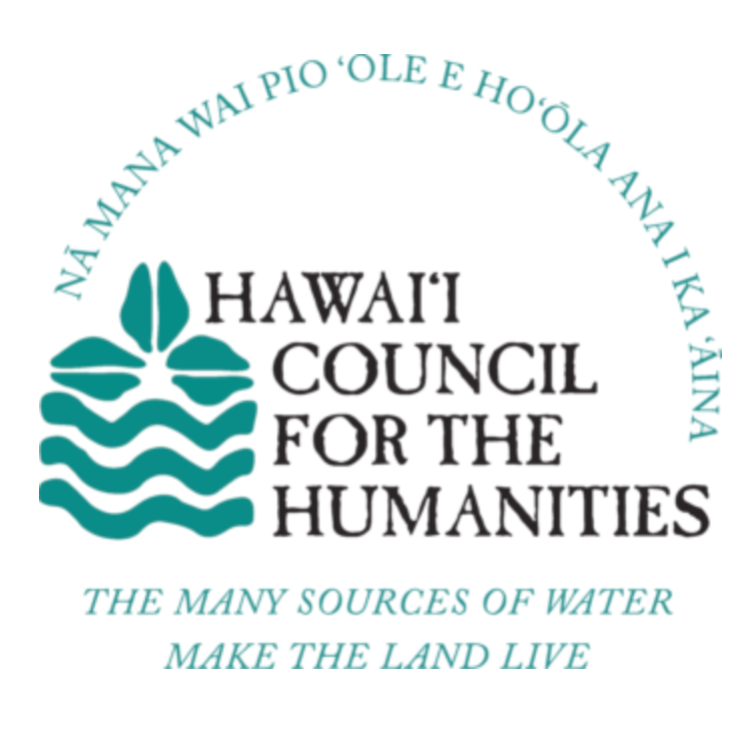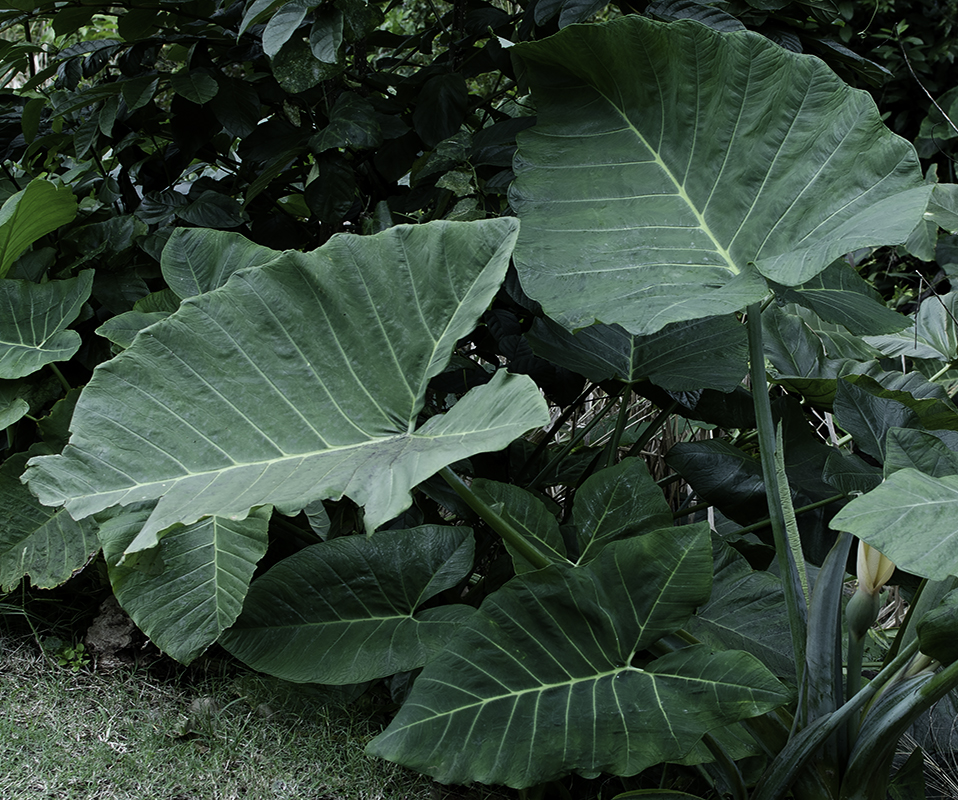Aloha e nā malihini,
Aloha to you, our guests, to strangers and newcomers. We are awaiting your visit with excitement. Mahalo to the Federation and National Humanities Alliance team for all their care and hard work in bringing us together. Mahalo to our co-hosts from Guåhan, Amerika Sāmoa, and the Northern Mariana Islands for their support and for taking on such a big responsibility with us.
There is a really important published collection of Hawaiian-language proverbs called ʻŌlelo Noʻeau, which was meticulously gathered and then published in 1983 by famed researcher, scholar of language and culture, kumu hula, translator, and genealogist, Mary Kawena Pukui. Its hundreds of poetical sayings scratch the surface of the wit, wisdom, and deep-rooted values of Hawaiian culture and Hawaiian language. I remember being in a college introductory Hawaiian-language class (I am nowhere near fluency, as I should be), where we would aspire to be able to “bust out” ʻōlelo noʻeau for the appropriate occasions. We learned to delight in poetry and deft language, and found solace and direction in its pages.
I have often turned to this one: Hoʻokahi nō lā o ka malihini, which is explained as “There is only one day to be a visitor,” then you have to pitch in to do the work.
This value teaches me a lot about the way to enter a new or unfamiliar place. I think about who I am and all I bring with me, and try to imagine my potential impact. I connect to my intentions to earn relationship and to give back in some way. I prepare myself humbly to listen and learn. I prepare myself to change.
This goal of transformation from malihini to something else I find an especially powerful ethic in our contemporary context of roots and routes. First, immigrant settlers to Hawai‘i, which include my own family, have been rooting in Native land and against and with Native Hawaiians in complex ways, for a few generations. How we malihini come to our dedication to Hawai‘i is a big question that I can’t properly address here.
Second, tourism as a well-routed mass industry is critical to our current economy and sense of self. In 2018, we hit a record of nearly 10 million tourists, which means we are facing some huge questions here. In the local news, government and tourism officials debate our islands’ limited “carrying capacity” and many of our communities worry about how rapidly developing urban areas are changing our culture, values, and lifestyles, leaving parts of Hawai‘i unrecognizable to older generations.
Hoʻokahi nō lā o ka malihini. As hosts, how do we create the conditions for real connection and transformation? I think it means that we love our home. We take the time ourselves to learn about and care for and protect our unique place. Then, we can welcome you with sincere open hearts and with great pride. In our off-site tours and events, and in the Hawai‘i and Pacific Island events scattered throughout the conference program, we have put our thought and spirit into creating meaningful experiences centered in our humanities—our complex and intimate stories about who we are. Come into our houses, to our beloved places. Come see our beauty and our flaws. Let us care for you, in trust that you will care for us too.
It’s a lot to offer and a lot to ask of you. We are honored to be able to connect with you in ways that change all of us. We surround our important time together with our love.
Aiko Yamashiro
Executive Director, Hawai‘i Council for the Humanities

